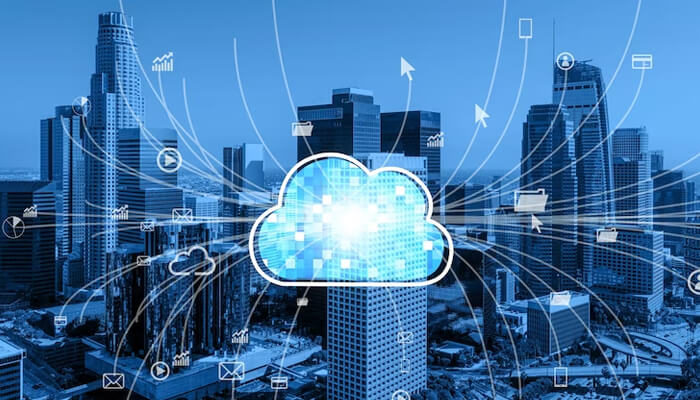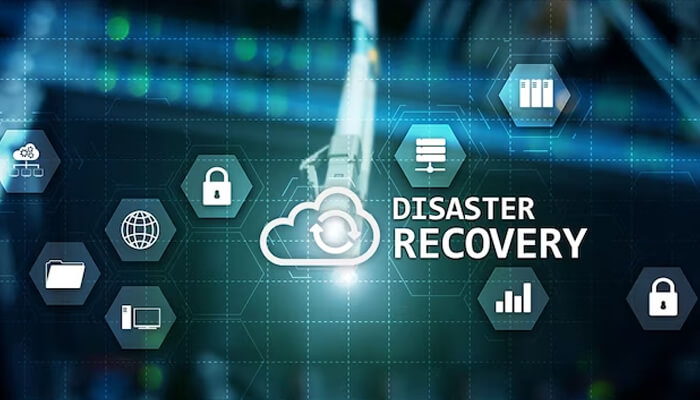The outbreak of the pandemic accelerated our entire world into a new era, one built on cloud technologies and remote working. In 2020-21, nearly every industry adopted this new technology at an unprecedented rate. This evolution is only set to expand in 2023 as companies now recognize remote work as the most reliable method for doing business. The future of cloud technology is an exciting prospect. We are rapidly reaching a place where global access to best-in-class applications and services can be achieved with a button.
In 2023, we will likely have one of the most advanced collections of cloud technologies in history and some of the best apps for air quality and sustainability initiatives. Setting the stage for unprecedented collaboration and convenience, the leading cloud technologies to gain traction this year offer a glimpse into what is possible globally. This blog post will discuss the top seven cloud technologies in 2023. So let’s get started.
Multi-Cloud and Hybrid Cloud Solutions
As we look ahead to 2023, it is clear that cloud-based computing will only become more pervasive. Organizations should be well equipped with multi-cloud and hybrid cloud solutions to ensure they are up-to-date and able to capitalize on the new opportunities this technology will bring.
Companies of all sizes need to have the right technologies in place now before their competitors do to stay competitive in an ever-evolving world. With trends pointing to businesses having more than one cloud provider and a mix of private and public clouds, multi-cloud and hybrid cloud solutions may be the key to success.
Disaster Recovery And Backup
Disaster recovery and backup will inevitably be one of the leading cloud technologies come 2023. Businesses won’t take any chances when protecting precious data, so their investment in this area will only expand.
Cloud-based disaster recovery and backup solutions allow enterprises to restore their critical applications and IT infrastructure with lightning-fast speed when something goes wrong or when disruption prompts a need for rapid healing. As Mission Critical continues to reign supreme in the digital age, safeguarding data and assets against disasters will be essential for businesses.
Internet Of Things (IoT) And Edge Computing
The Internet of Things has been steadily growing since its inception, and in 2023 it will be more widespread than ever before. IoT and edge computing are two technologies that go hand-in-hand: the former is responsible for connecting devices, while the latter allows for data processing at the edge of a network, eliminating delays.
Together, these two technologies are powering next-gen applications and ushering in new performance levels for businesses worldwide. By leveraging cloud technology, companies can store and manage their IoT devices more efficiently than ever.
Serverless Architecture For Applications
Migrating data from application-level infrastructure to serverless architecture can be daunting for inexperienced developers. However, serverless architecture grants an immense degree of flexibility, scalability, and cost-effectiveness to your applications. By relying on the cloud provider, you can free up resources to focus on other aspects of app development.
Serverless architecture might be the key to success for a Swift iOS developer. It’s a great hack for responding quickly to changes in customer needs and getting ahead of their competition.
With an efficient and cost-effective approach, Swift iOS developers can use serverless functions to quicken development cycles, improve scalability and stay updated with upcoming trends. And if you needed one more incentive, there was no need to worry about hiring expensive hardware engineers.
AI Platforms To Manage Data
Artificial intelligence platforms have already started to revolutionize data management in the cloud, and by 2023 they are predicted to be running the show. Investing in an AI platform is a way to go for businesses that want to stay competitive and use their data more cost-effectively.
These AI-powered systems can automatically optimize data usage and, through smart analytics, help businesses gain new insights about their customer base. Switching over technologies today doesn’t just mean saving money; it means permanently stepping into the future of cloud technology.
Industry-Specific Cloud Solutions
Clouds have changed how we work, facilitate collaboration and store data in the modern world. Taking advantage of many of the unique features cloud technology offers, businesses are now creating data centers explicitly tailored to their particular industry and customers.
By 2023, it’s estimated that nearly 70% of companies around the globe will be making use of these sector-specific solutions, optimizing how they do business through more secure and efficient infrastructure options. From hospital networks for medical record access to streaming video for entertainment distribution, clouds are revolutionizing how we interact with data beyond its conventional boundaries.
Database Management and Monitoring Platforms
By 2023, database management and monitoring platforms will be essential cloud technology. Database administrators (DBAs) will have access to sophisticated software that can help them detect issues and ensure the performance of their databases. This will lead to time savings and a higher level of accuracy. With powerful graphic user interfaces, DBAs can monitor multiple rolls from a single dashboard.
Also, built-in monitoring tools with analytics capabilities allow quick problem identification and resolution, allowing speedier problem detection than traditional methods. From 2021 onward, many companies are invested heavily in building robust database management solutions so that they can focus on productivity rather than building their custom solutions. Database management and monitoring platforms will take the industry by storm shortly.



